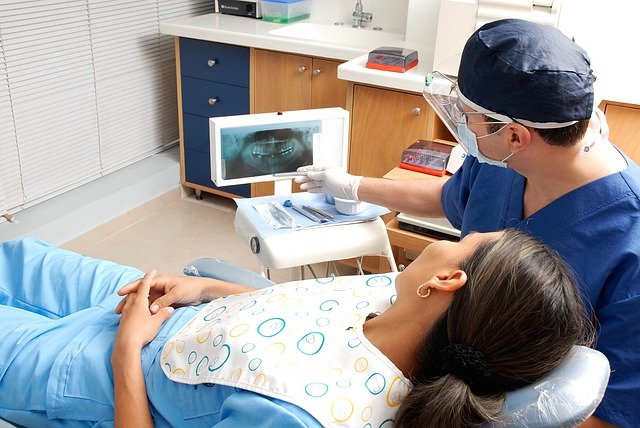Understanding Foot Neuropathy Treatment Options: A Comprehensive Guide
Explore foot neuropathy treatment options that focus on relieving pain, improving circulation, and managing symptoms. From medications and physical therapy to lifestyle adjustments, these approaches help enhance comfort, mobility, and overall quality of life for those affected.

Common Causes and Symptoms of Foot Neuropathy
Foot neuropathy can stem from multiple causes, with diabetes being the most prevalent. High blood sugar levels damage nerves over time, leading to diabetic peripheral neuropathy. Other causes include vitamin deficiencies, alcoholism, autoimmune disorders, injuries, chemotherapy, and certain medications. Symptoms typically begin gradually and may include numbness, tingling, burning pain, sensitivity to touch, muscle weakness, and balance problems. Many patients describe the sensation as “pins and needles” or feeling like they’re wearing invisible socks. Early recognition of these symptoms is crucial for accessing timely foot neuropathy treatment options that can prevent further nerve damage.
Medication-Based Foot Neuropathy Relief
Several medication classes can provide foot neuropathy relief. Over-the-counter pain relievers like acetaminophen, ibuprofen, and naproxen may help with mild symptoms. For more severe neuropathic pain, doctors often prescribe medications initially developed for other conditions. Anticonvulsants such as gabapentin and pregabalin help calm overactive nerves. Certain antidepressants, particularly tricyclic antidepressants and serotonin-norepinephrine reuptake inhibitors (SNRIs), can alleviate neuropathic pain independent of their effects on mood. Topical treatments like lidocaine patches or capsaicin cream provide localized relief by numbing sensations or depleting pain-transmitting chemicals. In some cases, opioid medications might be prescribed, though these carry risks of dependency and are typically used only when other options fail.
Non-Pharmaceutical Foot Neuropathy Pain Management Solutions
Beyond medications, numerous non-pharmaceutical approaches can effectively manage foot neuropathy symptoms. Physical therapy helps maintain muscle strength, improve balance, and prevent falls—common concerns for neuropathy patients. Occupational therapists can recommend adaptive equipment and techniques for daily activities. Transcutaneous electrical nerve stimulation (TENS) delivers mild electrical currents to nerves, potentially blocking pain signals. Acupuncture has shown promise for some patients, though results vary. Specialized footwear and orthotic devices redistribute pressure on the feet, reducing pain triggers. Simple lifestyle modifications also play a crucial role—regular gentle exercise improves circulation, blood sugar control aids diabetic neuropathy management, and smoking cessation helps prevent further nerve damage by improving blood flow. These foot neuropathy pain management solutions often work best when combined in a comprehensive treatment plan.
Advanced Treatments for Severe Foot Neuropathy
When conventional approaches prove insufficient, several advanced treatments exist for severe foot neuropathy. Nerve blocks temporarily interrupt pain signals through targeted injections of anesthetic medications. Spinal cord stimulation involves implanting a device that sends mild electrical pulses to the spinal cord, modifying pain perception. Peripheral nerve stimulation works similarly but targets specific peripheral nerves. Plasma exchange and intravenous immune globulin are options for neuropathies caused by inflammatory conditions. Surgical decompression may benefit patients whose neuropathy stems from compressed nerves. These advanced interventions typically require evaluation by specialists like neurologists, pain management physicians, or orthopedic surgeons who specialize in foot and ankle conditions. While these treatments don’t cure the underlying neuropathy, they can significantly improve symptoms and functionality for patients who haven’t responded to more conservative measures.
Complementary and Alternative Approaches for Neuropathy
Many patients explore complementary and alternative medicine approaches alongside conventional treatments. Alpha-lipoic acid, an antioxidant, has shown promise in some studies for diabetic neuropathy. B vitamins, particularly B1, B6, and B12, support nerve health and may help certain neuropathy types. Massage therapy improves circulation and may temporarily relieve pain. Mindfulness meditation, guided imagery, and other mind-body techniques can help patients cope with chronic pain and reduce stress that often exacerbates symptoms. While some patients report benefits from these approaches, scientific evidence varies in quality and quantity. Patients should discuss any supplements or alternative therapies with their healthcare providers, as some may interact with medications or be inappropriate for certain medical conditions.
Comprehensive Care Plans and Treatment Combinations
The most effective foot neuropathy treatment typically involves multiple approaches tailored to individual needs. Comprehensive care plans often combine medications, physical therapy, lifestyle modifications, and possibly advanced interventions. Regular monitoring by healthcare providers allows for timely adjustments to the treatment plan as symptoms or disease progression changes. For diabetic neuropathy patients, stringent blood sugar control forms the cornerstone of treatment, potentially slowing progression and reducing symptom severity. Support groups and mental health services address the psychological impact of chronic pain. Patient education on foot care is essential—daily foot inspections, proper footwear, and prompt attention to injuries help prevent complications like infections and ulcers that can be particularly dangerous for those with reduced sensation. By addressing both physical symptoms and quality of life concerns, comprehensive care plans offer the best chance for successful neuropathy management.
This article is for informational purposes only and should not be considered medical advice. Please consult a qualified healthcare professional for personalized guidance and treatment.




